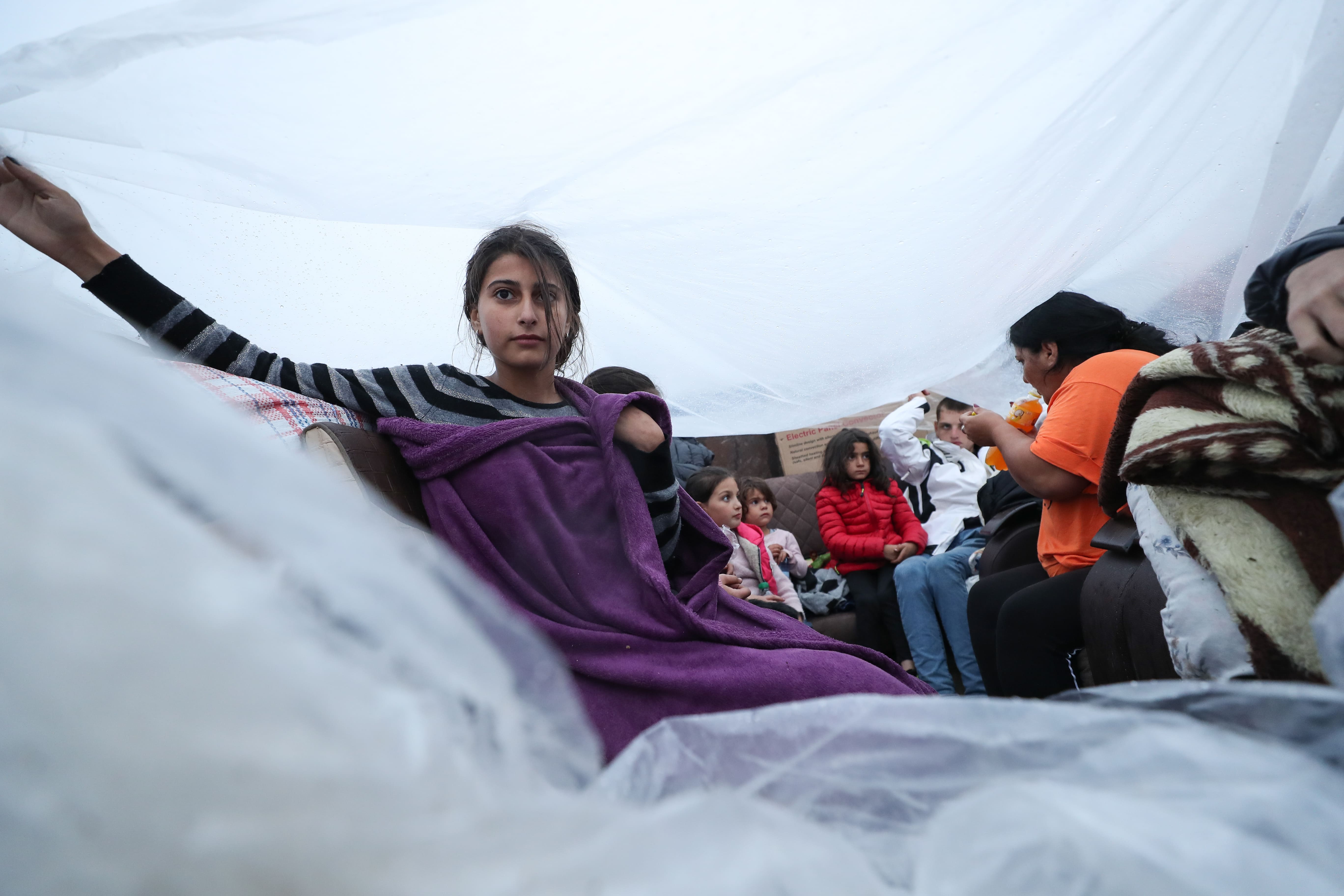
Displaced people from Nagorno Karabakh, sept. 2023 - Photo A. Avetisyan
The story of Suren, 42, who moved from Nagorno-Karabakh to Armenia a year ago, after the military attack by Azerbaijan. The difficult life of a man who has already seen four wars, the everyday challenge to take care of his family
"War is a tragedy that cannot be fully expressed in words. When the first shell exploded near my house, at that moment, I was only thinking about my child, terrified that something might happen to my 4-year-old son", recalls Suren, 42, who moved from Nagorno-Karabakh to Armenia a year ago. Suren is one of over 100,000 people who were forced to leave their homes.
A year ago, on September 19, as a result of the military attack by Azerbaijan, the entire population of Nagorno-Karabakh, including over 115,000 Armenians, had to leave their homes within a few days.
This displacement, which was the last stage of the ethnic cleansing policy, took place during the session of the UN General Assembly, when the entire international community had once again gathered to discuss the imperative of peaceful settlement of the conflicts, establishment of stability, and development, condemning the use of force, violation of international norms and human rights in different parts of the world.
During the past year, the Armenian government took necessary steps, including with the help of international partners, to address the primary and medium-term needs of displaced Armenians of Nagorno-Karabakh, as well as to develop necessary programmes in the long term.
"You can't imagine how hard it is to come to terms with the fact that you have to leave your own home. You have to leave it behind and go. You must walk out, close the door, and with it, close an entire chapter of your life. It’s incredibly difficult to leave behind everything you own, everything you worked so hard for over the years, and head into the unknown", says Suren.
Suren mentions that, after coming to terms with the idea of leaving, he faced yet another challenge: finding a vehicle that could take his family to Armenia.
"I don't own a car, and I can't drive, but even if I could, by then there was no fuel left. We had been living under siege for quite some time, and we had run out of both food and fuel. Azerbaijan had drained us. I had almost lost hope of escaping the chaos when I heard that public transport would be available to take us to Armenia. I hurried to register my family and began packing. Each of us could only take one bag. We brought a few clothes and that was it", Suren says slowly.
For Suren, talking about leaving home is particularly difficult. He says he turned off the electricity and gas to prevent any problems in his absence, locked the door, and took the key with him, hoping that one day he would return.
"In my home, we had a landline. When I first arrived in Armenia, I would occasionally call it. The calls would go through, but no one would answer. That gave me hope; it was a sign that no one (Azerbaijanis) was living in my house. Later, the calls stopped going through. The phone line was disconnected...".
Leaving the house and getting to Armenia was not easy. Due to the large influx of refugees, the only road was clogged for tens of kilometres. Reaching Goris would take 2-3 days instead of the usual 5-6 hours.
"No, I don’t want to remember. No, it was chaos...", Suren prefers not to dwell on the past. He says he has not forgotten a single moment, and those memories flash before his eyes like scenes from a movie every day. But he chooses to live in the present.
Suren quickly applied for Armenian citizenship and later found a job. Today, he works in his field as a lawyer. He does not complain about this new phase of life, acknowledging that it was difficult, but he has adapted.
"At first, my family settled in a region near the capital, Yerevan. The government offered us shelter, but I had some savings and rented a house instead. It was a temporary stop for us to gather our thoughts and figure out what was next. After about a month, we decided to move to Goris. My parents came with me. We live in a rented place, and both my friends and the government helped us. I don’t complain about life today; we’re living decently. I don’t know if this is our path, but there’s no giving up".
New life in Armenia
Suren firmly believes that if you keep crying and thinking about the past, life will remain stuck in place. But his plans are different — he wants to live.
"I'm 42 years old, and I've already seen four wars. That’s enough. I don’t want any more fighting or death...".
As a result of Azerbaijan's attack on Nagorno-Karabakh, 223 people were killed, including 25 civilians, five of whom were minors. During the fighting, 244 people were injured, around 80 of them civilians, including 10 minors. Twenty people went missing, five of whom were civilians. There were approximately 20 cases of desecration of corpses, for which there are corresponding forensic reports.
This war lasted for two days. The ceasefire was declared on September 20, when the authorities of Nagorno-Karabakh accepted Baku's proposal to lay down arms, a message delivered through the Russian peacekeeping mission stationed in Nagorno-Karabakh. A week later, the last president of Nagorno-Karabakh, Samvel Shahramanyan, signed a decree to dissolve the Republic by January 1, 2024.
Following ten months of blockade, 24 hours of military operations, and the announcement of the dissolution of Artsakh, more than 100,000 people began the migration to Armenia. Today, the Armenian government is providing assistance to these people, and their lives have entered a new phase.
















 To Top
To Top